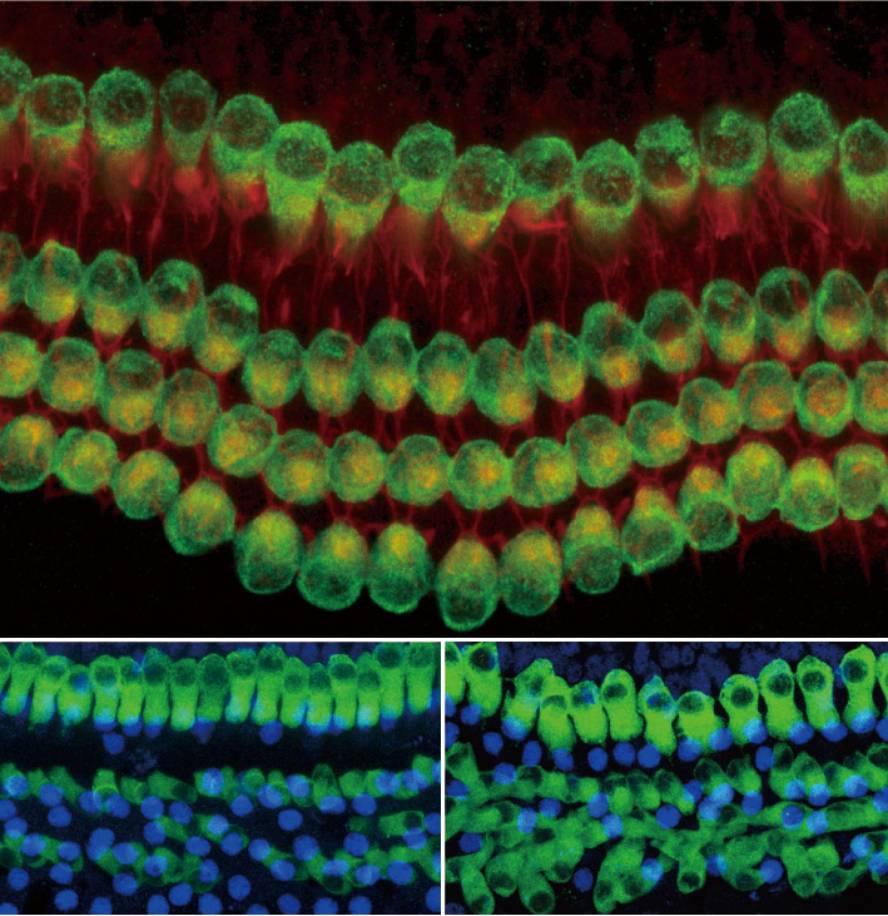Develop therapy to recover part of the ear

Researchers at the Begia and Belarria Center in Massachusetts have managed to get mice cut by noise to regain some of their hearing through therapy that has given them the ability to regenerate the cochlea's hair. Unlike birds and fish, mammalian inner ear pelillos do not regenerate spontaneously if damaged, so recovering the lost ear is much more difficult.
Through the therapy developed by Massachusetts researchers, other cells are separated around the affected hairs and converted into new capillary cells. As reported in the journal Neuron, the researchers first discovered that the stem cells of the inner ear treated with a gamma-sekretase enzyme inhibitor were converted into hair cells, and subsequently, the same molecule was introduced into the inner ear of mice. The enzyme inhibits the Notch protein signal in the cells around the hairs and signal inhibition causes these cells to become hair cells. Researchers have shown that there is a correlation between improved hearing and regions where new hair cells were created. This is the first time that the regeneration of inner ear pelillos in adult mammals is achieved, and researchers believe they have a good chance to generate therapies for deafness.





